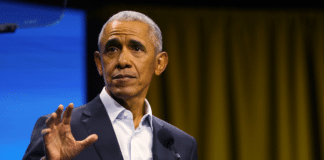Renowned Rich Dad Poor Dad author, Robert Kiyosaki, has voiced alarming concerns about the potential launch of a central bank digital currency (CBDC) in the U.S., warning that it could lead to a surveillance state reminiscent of the dystopian world in George Orwell’s 1984, according to a report from Reclaim the Net (RTN).
These concerns were shared during a recent episode of The Rich Dad podcast.
Kiyosaki emphasized his unease over the prospect of losing privacy with the introduction of a Federal Reserve-backed CBDC, dubbed the “FedCoin.”
He explained that this digital currency could grant authorities the power to track every financial transaction, thereby effectively eliminating any semblance of privacy for citizens.
In his podcast, Kiyosaki said, “The major apprehension with FedCoin, the CBDC, is that it erodes our privacy. By tracking every financial transaction, they will have access to every detail of our spending, the recipient of our money, and how we allocate our resources. In essence, it replicates George Orwell’s dystopian society depicted in 1984.”
“Big Brother will be constantly monitoring our financial activity, and this is precisely the problem with central bank digital currency, or the Fed Coin,” he added.
The author’s warning comes at a time when the Federal Reserve is actively exploring the potential benefits of implementing a CBDC, RTN notes.
Drawing parallels to the Big Brother scenario from Orwell’s novel, Kiyosaki underscored the risks of continuous scrutiny of people’s lives through their financial activities.
Kiyosaki also expressed his personal concerns about the possible surveillance, stating, “As an individual, I become nervous at the thought of this. I do not want them to monitor my every transaction or be privy to my spending habits. It is a violation of my privacy, and they have no business knowing how I choose to allocate my resources.”
The debate around CBDCs and their potential impact on privacy is likely to continue as more governments consider adopting digital currencies.





